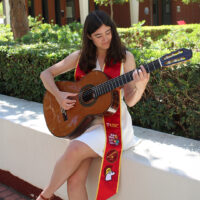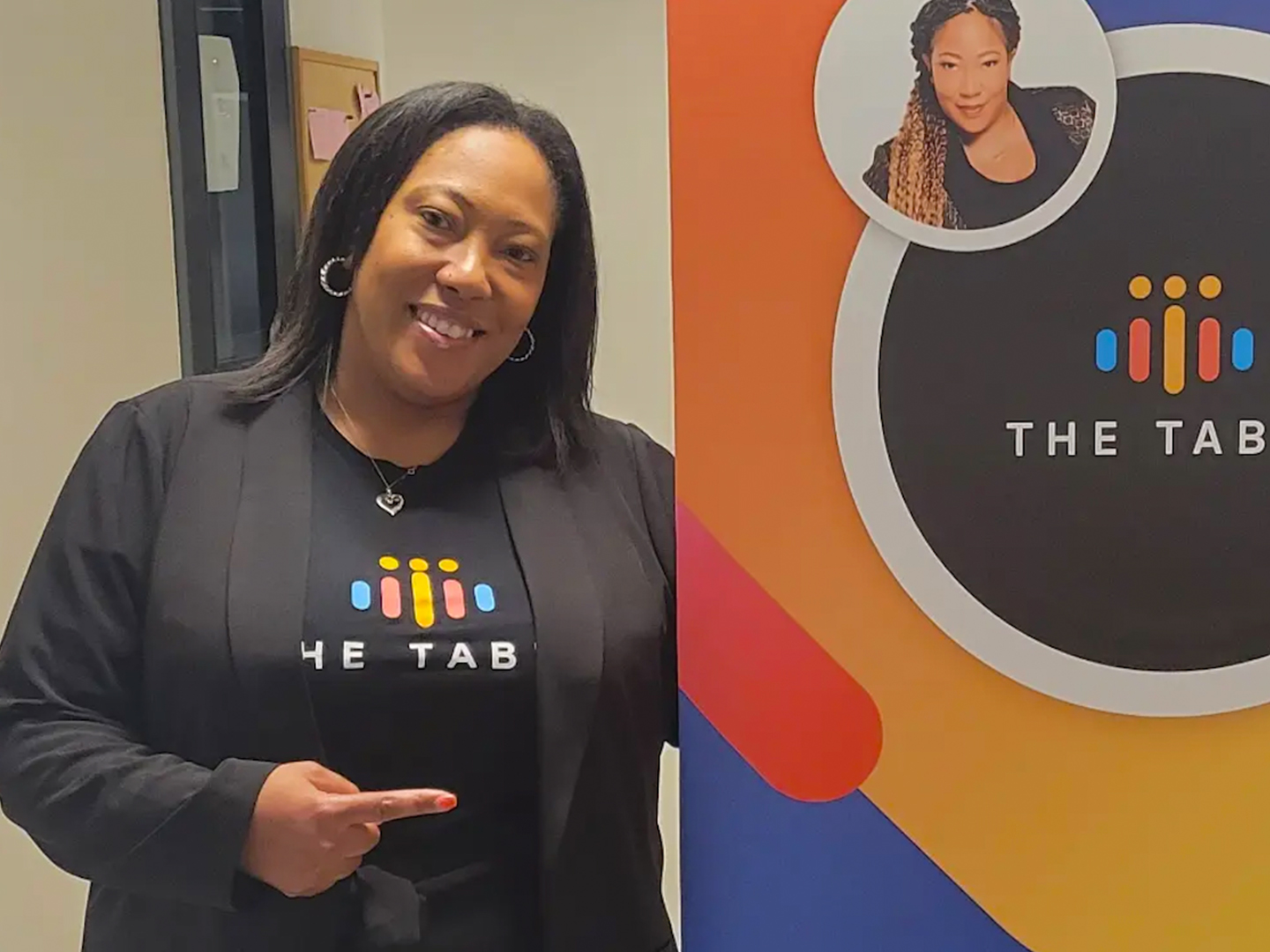
Social Justice in Music Education
By Julie Riggott
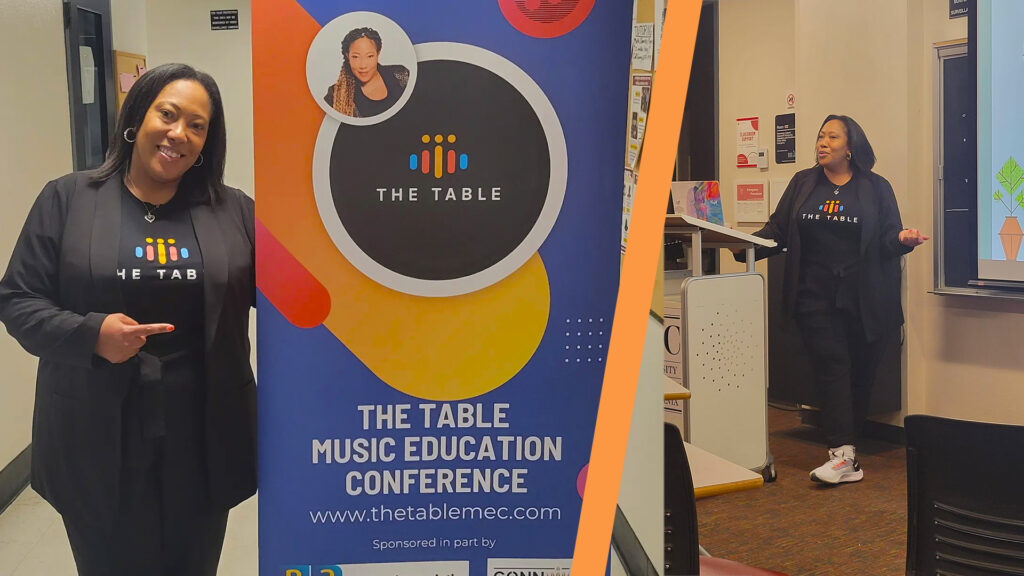
Angelica Brooks starts The Table Music Education Corporation to help higher ed recruit and retain educators of color.
In her first semester of USC Thornton’s DMA program in Music Teaching and Learning, Angelica Brooks came across a journal article that struck a chord.
“In the first sentence of the abstract, it talked about creating more Black female educators as an act of social justice, and that resonated with me because I never looked at recruitment into education as an act of social justice,” said Brooks, an award-winning Black female music educator.
The article, called “Pushed to Teach: Pedagogies and Policies for a Black Woman Educator Pipeline,” propelled more research on the lack of racial equity in education. And what she learned was alarming.
“Statistics show that our student population is going to continue to diversify through 2030, just as it has for the past 20 years. However, our teacher workspace is not: 79% of public school educators identify as White non-Hispanic, 82.3% for music educators,” Brooks said.
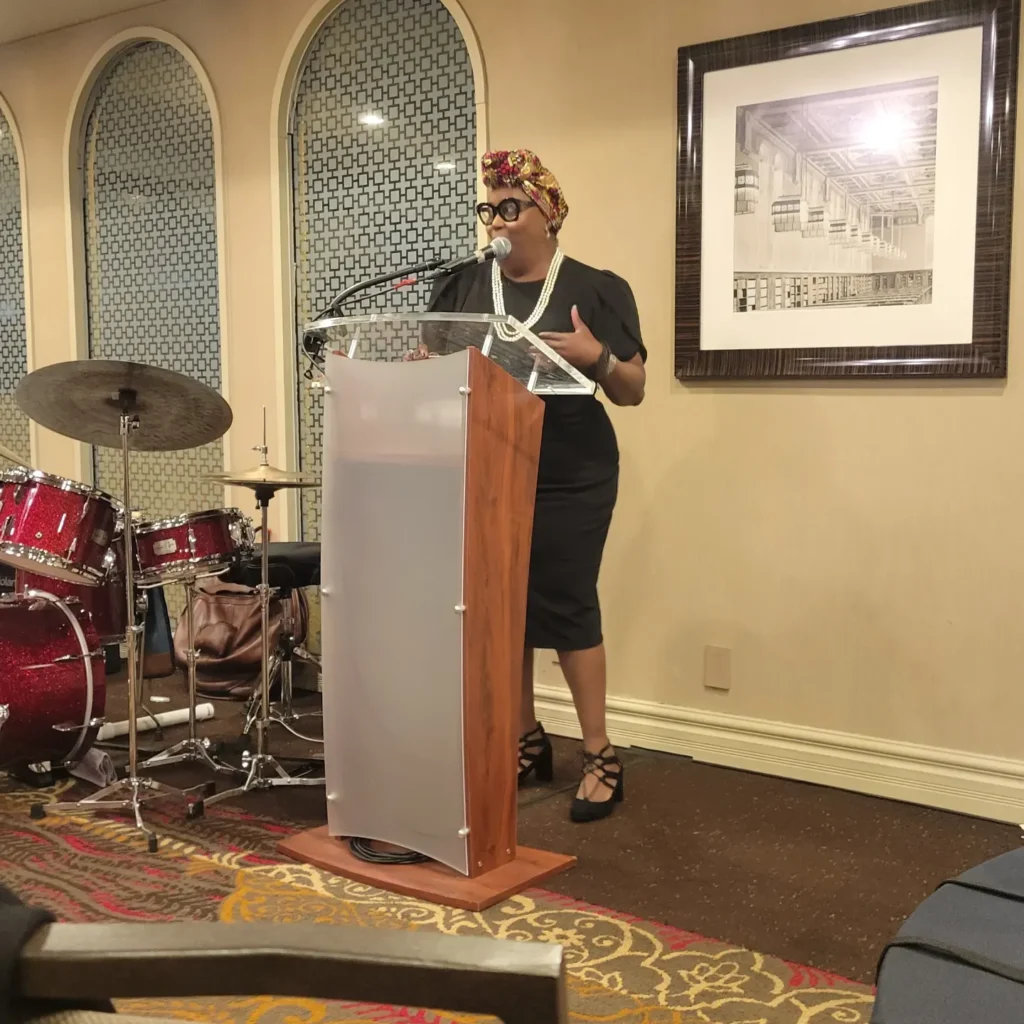
That knowledge became one of the inspirations — along with her work with the Equity Committee of the National Association for Music Education (NAfME) — for Brooks to found The Table Music Education Corporation.
The Table is a 501c3 organization that examines how music educators of color are recruited and how institutions of higher learning can better assist in their retention. Its first conference was held at USC Thornton on March 10-12, 2023.
Before creating The Table, Brooks looked at the existing conferences and organizations built to support music educators. She found they were siloed. There are associations for specific educators, like choral directors and string teachers. And at conferences of the National Association for Music Education, people attend sessions specific to their field.
That’s where Brooks saw the opportunity for change.
“When it comes to an issue like recruiting and retaining music educators, especially music educators of color, this has to be an issue that’s approached from all angles,” she said. “This has to be an issue where we are bringing together the music professors that teach and train music educators, pre-service music educators, the music administrators who hire them, and the music teacher leaders who helped support and mentor them within the first five years of their career because that’s the time when we see the most attrition in the profession.”
Brooks received a Presser Foundation grant, and a year later, The Table’s first conference brought music education professionals to the USC campus in partnership with community and education organizations. Mackie Spradley, past president of NAfME, gave the keynote address. Other talks explored topics such as pathways into the profession and teacher preparation; one session featured the work of the LAUSD Black Student Excellence Initiative.
Inspired to Teach
Brooks, who taught in Prince George’s County Public Schools in Maryland for 13 years where she developed award-winning programs, was most recently the director of choral activities at Bowie High School, teaching choir, drama and music theory. She was named Teacher of the Year for that district in 2019 and one of the 2021 Maryland MMEA Outstanding Music Educators of the Year. Currently, she teaches online as an adjunct at the University of Maryland Baltimore County in the Music Education Department.
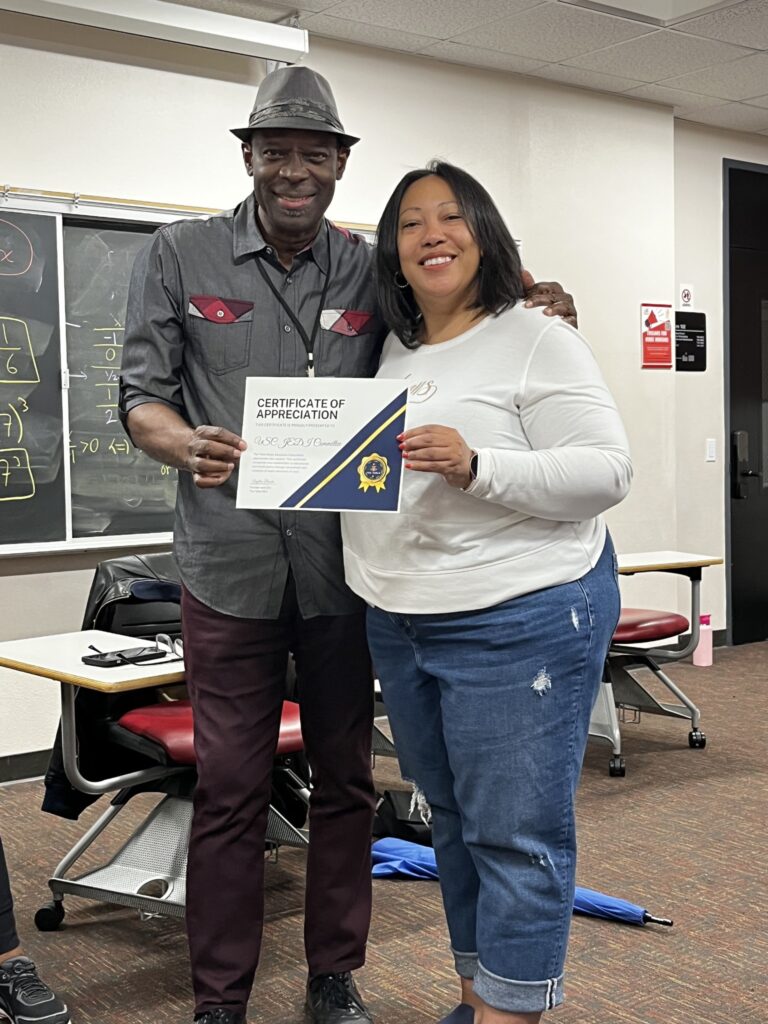
Throughout her own education, Brooks saw herself represented in her teachers.
“The wonderful thing about going to school in Prince George’s County is that just about all of my music teachers were Black,” she said. “All of my music educators were Black. My first exposure to music was my father who was a church musician, then through undergrad, because I went to Bowie State University, which is the oldest HBCU in the state of Maryland.”
While ensuring that students see themselves in the profession is one powerful argument for diversity and representation in the classroom, Brooks sees another as well, one that she addressed in a recent interview with Teaching Music Magazine.
“Diversifying the curriculum starts with who’s in front of the room,” she said. “If we talk about the future of music educators in K-12 and academic spaces, you really have to think about how to reach our ever-diversifying student population, because these are ultimately going to be the next generation of musicians and music educators.
“And it has to be about: how can we create a curriculum that really does reach all students? We can’t continue to try to fit so many different ideas, perspectives, curriculums, cultures and music into one mold, because that’s not what music is.”
Meanwhile, The Table is not the only work Brooks is doing toward social justice. As a member of USC Thornton’s J.E.D.I. Committee (justice, equity, diversity and inclusion) for the past two years, Brooks has worked on numerous projects. For example, she assisted with the From Tragedy to Triumph: A History of the African Diaspora curriculum, which will soon be piloted in LAUSD schools.
For Black History Month, she curated a playlist of music by USC Thornton faculty, alumni and students.
“I discovered alumni from Thornton that I didn’t know were alumni, people whose work I’ve admired. It was great to discover the catalogs of so many talented people that are connected to Thornton.”

